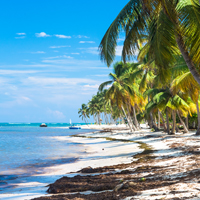Homeschooling in the Dominican Republic
Summary: If you're moving with kids to the Dominican Republic and homeschooling is something you're considering, it's important to do your research and learn about homeschooling in the Dominican Republic.
Homeschooling, a form of education where parents or tutors educate children at home rather than in formal schools, is a growing trend worldwide. In the Dominican Republic, this alternative form of education is gaining traction, especially among foreign residents and expats. This article explores the legalities, prevalence, requirements, resources, university admissions considerations, and the pros and cons of homeschooling in the Dominican Republic.
Is it legal to homeschool in the Dominican Republic?
Yes, homeschooling is legal in the Dominican Republic. The country's constitution guarantees the right to education, and this includes homeschooling. However, it's important to note that the government does not provide any specific guidelines or regulations for homeschooling. This means that foreign residents and expats are free to homeschool their children as they see fit, as long as they adhere to the general education laws of the country.
Is Homeschooling common in the Dominican Republic?
While homeschooling is not as common as traditional schooling in the Dominican Republic, it is gradually gaining popularity, especially among the expat community. Many foreign residents prefer homeschooling due to language barriers, differences in curriculum, or dissatisfaction with local schools. However, it's still a relatively small community compared to countries where homeschooling is more established.
What specific requirements are there for homeschoolers in the Dominican Republic?
As mentioned earlier, the Dominican Republic does not have specific regulations for homeschooling. This gives parents a lot of freedom in choosing the curriculum and teaching methods. However, it's recommended that parents keep records of their children's progress and achievements, as these may be required for university admissions or if the family decides to return to formal schooling.
Are there groups or resources for families who homeschool in the Dominican Republic?
Yes, there are several resources and support groups for homeschooling families in the Dominican Republic. These include online forums, social media groups, and local homeschooling co-ops where families can share resources, advice, and organize group activities. Some international schools also offer support to homeschooling families, such as access to their libraries or extracurricular activities.
What should homeschooling parents take into consideration for university admissions in the Dominican Republic and internationally?
When it comes to university admissions, homeschooling parents should ensure that their children meet the entry requirements of the universities they are interested in. This may include specific subjects, exams, or qualifications. In the Dominican Republic, universities generally accept homeschooling students, but they may require proof of education, such as a portfolio of work or standardized test scores. Internationally, requirements can vary greatly, so it's important to research each university's policy.
What are the Pros and Cons of homeschooling in the Dominican Republic (for expat families)?
Homeschooling in the Dominican Republic offers several advantages for expat families. These include the flexibility to follow their home country's curriculum, the ability to overcome language barriers, and the opportunity to spend more quality time together as a family. However, there are also challenges. These include the lack of specific regulations, the responsibility of providing a comprehensive education, and potential isolation from the local community. Therefore, it's important for each family to weigh these pros and cons before deciding on homeschooling.
About the Author
 Betsy Burlingame is the Founder and President of Expat Exchange and is one of the Founders of Digital Nomad Exchange. She launched Expat Exchange in 1997 as her Master's thesis project at NYU. Prior to Expat Exchange, Betsy worked at AT&T in International
and Mass Market Marketing. She graduated from Ohio Wesleyan University
with a BA in International Business and German.
Betsy Burlingame is the Founder and President of Expat Exchange and is one of the Founders of Digital Nomad Exchange. She launched Expat Exchange in 1997 as her Master's thesis project at NYU. Prior to Expat Exchange, Betsy worked at AT&T in International
and Mass Market Marketing. She graduated from Ohio Wesleyan University
with a BA in International Business and German.
Some of Betsy's articles include 12 Best Places to Live in Portugal, 7 Best Places to Live in Panama and 12 Things to Know Before Moving to the Dominican Republic. Betsy loves to travel and spend time with her family. Connect with Betsy on LinkedIn.
Additional Information:
- Dominican Rep Guide
- Healthcare & Health Insurance in Dominican Rep
- Members Talk about Healthcare & Health Insurance in Dominican Rep
- Best Places to Live in Dominican Rep
- Real Estate in Dominican Rep
- Guide to Real Estate in Dominican Rep
- Pros & Cons of Living in Dominican Rep
- Cost of Living in Dominican Rep
- Christmas in the Dominican Republic
- Dengue Virus in the Dominican Republic
- Culture Shock in the Dominican Republic
- Homeschooling in the Dominican Republic
- Pros and Cons of Living in Dominican Rep 2025
- 2025 Guide to Moving to Dominican Rep




